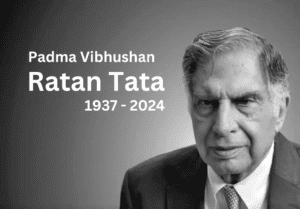Lidia Thorpe, an Indigenous Australian senator, sparked outrage with a protest against King Charles III during his visit to Australia, holding up a sign that read “You are not my king” alongside a cartoon of the beheaded monarch. Thorpe, a vocal advocate for Indigenous sovereignty, used the protest to highlight her opposition to the British monarchy, which she views as a symbol of colonial oppression. This act has drawn both criticism and support, underscoring Thorpe’s divisive role in Australian politics.
Lidia Thorpe, an Indigenous Australian senator, has recently found herself at the center of a major controversy after staging a provocative protest against King Charles III during his visit to Australia. Thorpe, known for her outspoken views on Indigenous sovereignty and colonialism, held up a sign depicting the monarch beheaded, with the bold slogan “You are not my king”. This shocking display has sparked intense debate across Australia and internationally.
Watch the video here
To further elaborate on Lidia Thorpe’s controversial protest, it is crucial to mention the cartoon that added fuel to the fire. The protest not only involved a sign with the words “You are not my king”, but also a cartoon depicting a beheaded King Charles III. This bold imagery was intended to symbolize her rejection of the British monarchy, which Thorpe views as a colonial institution still oppressing Indigenous people in Australia.
The cartoon stirred immediate outrage, with critics calling it inappropriate and disrespectful, particularly given King Charles’s ongoing cancer treatment at the time. Many viewed this act as an extreme form of protest, sparking a significant backlash on social media and among political commentators.
However, after the backlash, Thorpe deleted the cartoon from her Instagram account and issued a statement clarifying that the post had been shared without her knowledge. She emphasized that she does not condone violence, saying:
“Earlier tonight, without my knowledge, one of my staff shared an image to my Instagram stories created by another account. I deleted it as soon as I saw it. I would not intentionally share anything that could be seen to encourage violence against anyone. That’s not what I’m about,”
For more information, you can read about the controversy here on Times of India
The timing of this protest added to the controversy, as it occurred while King Charles was undergoing cancer treatment. Critics, including political figures and social media users, condemned Thorpe’s actions as “disrespectful” and “inappropriate.” One viral post called her protest “utterly disgusting,” accusing Thorpe of lacking compassion, especially given the King’s health condition
Thorpe, however, remains defiant. She continues to stand by her actions, asserting that Indigenous Australians do not recognize colonial figures like King Charles as legitimate rulers. Her protest aimed to draw attention to the ongoing issues of colonialism and dispossession that Indigenous Australians have faced for generations. According to Thorpe, the monarchy symbolizes these issues, and her protest was a way to confront this uncomfortable history head-on.
This controversy is not Thorpe’s first confrontation with the monarchy. In 2023, she famously refused to pledge allegiance to the Queen during her swearing-in as senator, a moment that also sparked widespread debate. These bold actions have made Thorpe a divisive figure in Australian politics, with some praising her for standing up to colonial powers, while others accuse her of being unnecessarily confrontational.
Lidia Thorpe’s Journey: From Activist to Political Firebrand
Early Life and Activism
Thorpe’s activism is deeply rooted in her Gunnai-Gunditjmara and Djab Wurrung heritage. Raised in an activist family, her mother was a staunch advocate for Aboriginal rights, shaping Thorpe’s early understanding of social and political injustice. From a young age, Thorpe was actively involved in grassroots movements aimed at advancing Indigenous land rights and environmental justice.
Her early activism focused on truth-telling about Australia’s colonial past. Thorpe has long argued that reconciliation can only be achieved once Australians acknowledge the violent history of colonization and its continuing impact on First Nations people. This belief has informed much of her political career, driving her to pursue real, substantive changes to the legal and political systems that affect Indigenous communities.
Entry into Politics
In 2017, Thorpe became the first Aboriginal woman elected to the Victorian Parliament, marking the beginning of her political career. Later, she took her place in the Australian Senate, initially representing the Greens. Thorpe quickly made a name for herself as a fierce advocate for Indigenous sovereignty, consistently pushing for land rights, environmental justice, and treaty processes.
Her time in the Senate has been marked by her willingness to speak truth to power, often clashing with political rivals and even members of her own party. In 2023, Thorpe resigned from the Greens, stating that the party’s stance on Indigenous issues was not radical enough. As an independent senator, she has dedicated herself to the Blak Sovereign Movement, advocating for the self-determination of First Nations people.
Opposition to the Uluru Statement from the Heart
One of the most controversial aspects of Thorpe’s political career is her opposition to the Uluru Statement from the Heart, a document calling for constitutional recognition of Indigenous Australians. Unlike many Indigenous leaders, Thorpe argues that constitutional recognition is a symbolic gesture that does not go far enough in addressing the real issues facing First Nations communities.
Thorpe believes that treaty negotiations, land rights, and truth-telling must come before any form of constitutional recognition. She has advocated for the implementation of the United Nations Declaration on the Rights of Indigenous Peoples (UNDRIP) into Australian law, which she believes sets the minimum standard for human rights. In 2022, she introduced a Private Members Bill aimed at enshrining UNDRIP in Australian legislation
Thorpe’s Push for Environmental Justice
Lidia Thorpe’s activism extends beyond Indigenous sovereignty; she is also a fierce advocate for environmental justice. Thorpe has repeatedly linked the exploitation of natural resources to the oppression of Indigenous communities, arguing that climate justice and Indigenous rights are inextricably linked.
One of the key environmental issues Thorpe has championed is the protection of water rights in the Murray-Darling Basin. She has criticized the Australian government for failing to properly consult Indigenous communities on water management, describing this as another form of colonial exploitation. Thorpe believes that Indigenous people must have a seat at the table when it comes to environmental policies that affect their lands
How Will Lidia Thorpe Be Remembered?
Lidia Thorpe’s legacy is likely to be as divisive as her political career. On one hand, she is seen as a trailblazer for Indigenous sovereignty and environmental justice. Her confrontational style and willingness to challenge the status quo have made her a hero among many Indigenous activists. On the other hand, her controversial actions, such as her protest against King Charles, have alienated her from mainstream political figures and led to accusations of extremism.
However, what cannot be denied is that Thorpe has forced Australia to confront difficult truths about its colonial past and present. Whether she is remembered as a radical or a revolutionary, her influence on Australian politics is undeniable. As she continues to advocate for Indigenous sovereignty and climate justice, Thorpe’s impact will only grow.
Frequently Asked Questions (FAQ)
What did Lidia Thorpe say about King Charles?
Lidia Thorpe held a protest during King Charles III’s visit to Australia, displaying a cartoon of the monarch beheaded with the slogan “You are not my king.”
Why did Lidia Thorpe leave the Greens?
Thorpe resigned from the Greens in 2023, citing the party’s insufficient commitment to Indigenous sovereignty and more radical changes.
What is Lidia Thorpe’s stance on Indigenous sovereignty?
Thorpe advocates for Indigenous sovereignty, calling for truth-telling, treaty negotiations, and the implementation of the United Nations Declaration on the Rights of Indigenous Peoples (UNDRIP).
Why is Lidia Thorpe controversial?
Thorpe is known for her confrontational style and protests against the monarchy, which have sparked debate over her approach to Indigenous sovereignty and Australian colonialism.
What are Lidia Thorpe’s key policies?
Thorpe’s key policies include Indigenous sovereignty, environmental justice, and the enshrinement of UNDRIP in Australian law.
Who is Lidia Thorpe?
Lidia Thorpe is an Indigenous Australian senator known for her activism for Indigenous sovereignty and environmental justice. She represents the Blak Sovereign Movement and is a member of the Gunnai-Gunditjmara and Djab Wurrung communities.
Who are Lidia Thorpe’s parents?
Lidia Thorpe’s mother, Marjorie Thorpe, is a prominent advocate for Indigenous rights, influencing Lidia’s early involvement in activism. Information about her father is less commonly publicized.
Why is Lidia Thorpe against the Voice?
Lidia Thorpe opposes the Uluru Statement from the Heart, which advocates for a Voice to Parliament for Indigenous Australians. She believes that constitutional recognition is insufficient and that treaty negotiations and truth-telling should take precedence.
How old is Lidia Thorpe?
Lidia Thorpe was born on August 18, 1973, making her 51 years old in 2024.
Is Lidia Thorpe half white?
Lidia Thorpe identifies as an Indigenous woman, belonging to the Gunnai-Gunditjmara and Djab Wurrung communities. There is no widely available information regarding her father’s ethnicity.
Where was Lidia Thorpe born?
Lidia Thorpe was born in Carlton, a suburb of Melbourne, Australia.
What is Lidia Thorpe’s ancestry?
Lidia Thorpe is of Gunnai-Gunditjmara and Djab Wurrung descent, proudly identifying with her Indigenous heritage.
How did Lidia Thorpe get elected?
Lidia Thorpe became the first Aboriginal woman elected to the Victorian Parliament in 2017. She was later elected as a senator for Victoria, initially representing the Greens before resigning in 2023.
Why did Lidia Thorpe resign from the Greens?
Thorpe resigned from the Greens due to differences over the party’s commitment to Indigenous sovereignty and the pace of truth-telling and treaty processes.
What did Lidia Thorpe say?
Thorpe made headlines with her “You are not my king” protest against King Charles III, calling attention to the monarchy’s role in the oppression of Indigenous Australians.
What does Lidia Thorpe want?
Thorpe advocates for Indigenous sovereignty, truth-telling, and the implementation of the United Nations Declaration on the Rights of Indigenous Peoples (UNDRIP) into Australian law. She is also a vocal proponent of environmental justice and the protection of Indigenous lands.
Conclusion: Lidia Thorpe—A Divisive but Unyielding Force in Australian Politics
Lidia Thorpe’s political career is nothing short of controversial, but her commitment to Indigenous sovereignty and environmental justice is unwavering. Whether holding up a provocative protest sign against the monarchy or pushing for the implementation of UNDRIP, Thorpe consistently challenges the status quo. As her Blak Sovereign Movement gains traction, and as debates over Australia’s colonial legacy continue, Thorpe remains one of the most influential figures in contemporary Australian politics.





